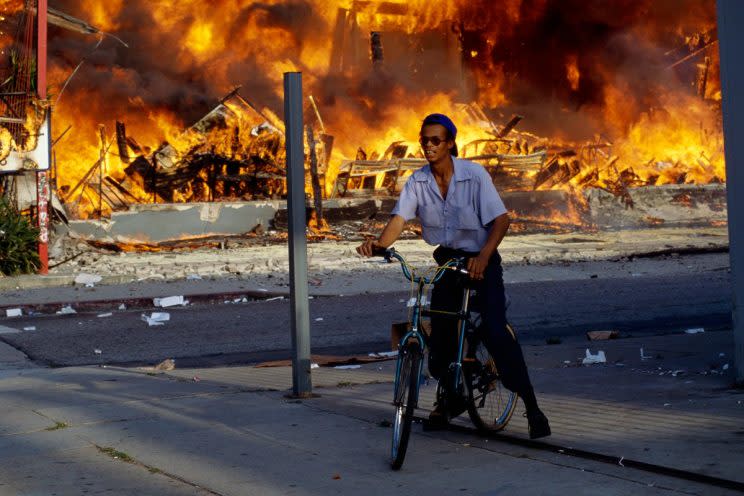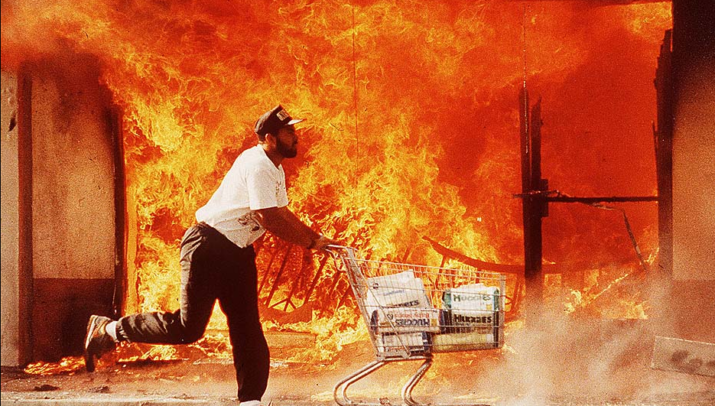‘Burn, Motherf*****, Burn!’: Riots as Revolutionary Acts

In 1992, riots erupted in Los Angeles, Calif., after the acquittal of the police officers who had beaten innocent citizen Rodney King on a Los Angeles street. The occasion for Showtime’s airing of the new documentary Burn, Motherf******, Burn! is the 25th anniversary of those fire-burst protests, which spread from South Central Los Angeles to put fear in the more expensive areas of the city.
But this riveting presentation has large ambitions as well: It serves as a primer for inner-city rioting as a revolutionary act in L.A. over a half-century — from the mid-1960s to the present.
The film begins in 1962, with the police shootings in Black Muslim Mosque No. 27, in which 40 officers shot seven mosque members over a minor infraction and set off both local protests and a Los Angeles visit from Malcolm X, who declared, “The white man should clean his house up, and if he’s not ready to clean it, he shouldn’t have a house — it should catch on fire and burn down.”
The film moves on to 1965’s riots in the Watts neighborhood of L.A., where the first two nights of protests against what residents regarded as unfair treatment by the police under the command of William Parker resulted in the deaths of 28 people — “all but four of them Negroes,” we hear from a TV news report at the time. Director Sacha Jenkins interviews activists and Los Angeles historians such as Jeff Chang (go and read his great history of hip-hop, Can’t Stop Won’t Stop) and Mike Davis (read his classic L.A. book City of Quartz), who place the racial discrimination and racist practices of the L.A. police force — under the leadership of Parker and his successor Daryl Gates — in a perspective extending back to the days of slavery.

Burn is filled with amazing and often cleverly chosen footage, including an interview with singer Barry White on Dinah Shore’s 1970s daytime talk show in which he talks about his participation in the Watts riots. “How did you feel the next morning?” she asks. “Very good, Sweetie,” he responds smoothly, to laughter and applause. How times have changed: Can you imagine a pop star now telling a talk show host that he or she enjoyed looting during a riot, and what the audience response would be?
Director Jenkins connects the dots between one period of civil unrest to another, and the film ultimately extends the scope of Burn to the present day. Various activists and interviewees insist that the shootings of black citizens by the police in recent years connects to a continuum of history going back to Watts and beyond.
Next week, on April 28, ABC will premiere an equally good documentary on the same subject: John Ridley’s Let It Fall: Los Angeles 1982-1992. Taken together, these two films are valuable documents that one hopes will educate a new generation about the roots of protests seen today from Black Lives Matter and other coalitions.
Burn, Motherf*****, Burn! airs Friday at 9 p.m. on Showtime.
Read more from Yahoo TV:
‘Silicon Valley’ Season 4 Review: Innovation vs. Integrity, With Laughs
Titus Welliver Takes the Lead on ‘Bosch’
‘Girlboss’ Star Britt Robertson on Her Character: ‘She’s Dumb and She’s Smart, Driven and Lazy’


